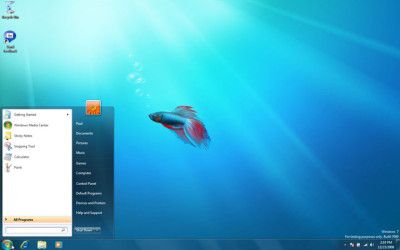From our front-page news:
Last week, we posted about the numerous editions that Windows 7 would be available in, but today, CNET blog Beyond Binary gives even more details about what to expect. It looks like Windows 7 will drop the "Business" moniker and replace it with "Professional", a tag that was best known on Windows XP. In addition, the Home Basic will no longer be available on these shores, but rather be exclusive to emerging markets.
Microsoft's Senior Vice President Bill Veghte notes that the focus in the US will be on the Home Premium and Professional editions, which he claims will account for 80% of Windows 7 sales. The Ultimate edition will still exist, but it doesn't seem like Microsoft is too confident that it will sell that many copies (and as with Vista Ultimate, it probably won't even pay off to the consumer, but that's a personal opinion).
Another aspect taken into account is what each version will include, and thanks to complaints with Vista, you shouldn't have to upgrade to a larger version to get a feature you feel belongs in the one you bought. Media Center, for example, will come included with Professional, whereas it didn't for Business with Vista. So, on these shores, we'll have three main versions to deal with. That's not so bad. Especially if you consider most people will just pick up Home Premium. If you need Professional or Ultimate, you probably know it already.

Home Basic, which will be sold only in emerging markets, removes the screen size, processor, and open application limits and adds support for Internet connection sharing and the new sensor and location-based features. However, Home Basic lacks such things as multitouch support or the Aero interface. DVD playback and Windows Media Center are also found in the Home Premium and Professional editions, but not in Basic or Starter.
Source: Beyond Binary Blog
Microsoft's Senior Vice President Bill Veghte notes that the focus in the US will be on the Home Premium and Professional editions, which he claims will account for 80% of Windows 7 sales. The Ultimate edition will still exist, but it doesn't seem like Microsoft is too confident that it will sell that many copies (and as with Vista Ultimate, it probably won't even pay off to the consumer, but that's a personal opinion).
Another aspect taken into account is what each version will include, and thanks to complaints with Vista, you shouldn't have to upgrade to a larger version to get a feature you feel belongs in the one you bought. Media Center, for example, will come included with Professional, whereas it didn't for Business with Vista. So, on these shores, we'll have three main versions to deal with. That's not so bad. Especially if you consider most people will just pick up Home Premium. If you need Professional or Ultimate, you probably know it already.

Home Basic, which will be sold only in emerging markets, removes the screen size, processor, and open application limits and adds support for Internet connection sharing and the new sensor and location-based features. However, Home Basic lacks such things as multitouch support or the Aero interface. DVD playback and Windows Media Center are also found in the Home Premium and Professional editions, but not in Basic or Starter.
Source: Beyond Binary Blog
